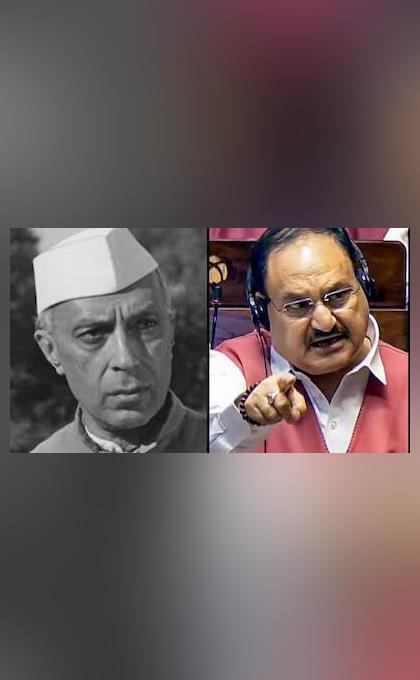
Indus Water Treaty was ex-PM Nehru’s Himalayan Blunder: JP Nadda
In a shocking revelation, Union Minister JP Nadda has accused ex-Prime Minister Jawaharlal Nehru of committing a “Himalayan blunder” by signing the Indus Water Treaty without consulting the Indian Parliament. Nadda’s statement comes after India kept the treaty in abeyance following the recent Pahalgam terror attack.
The Indus Water Treaty, signed in 1960, allows the sharing of the waters of the Indus and its tributaries between India and Pakistan. The treaty was seen as a crucial step towards resolving the water dispute between the two countries, which had been a major source of tension since the partition of India and Pakistan in 1947.
However, Nadda’s statement suggests that Nehru’s decision to sign the treaty without consulting the Indian Parliament was a grave mistake that has compromised India’s water security and national interest. The Union Minister’s remarks have sparked a heated debate on the treaty, with many questioning the wisdom of Nehru’s decision.
According to Nadda, the Indus Water Treaty was signed by Nehru without taking into account the concerns of the Indian people. “It was a decision that permanently compromised India’s water security and national interest,” Nadda said in a statement.
The Union Minister’s statement has also raised questions about the role of the Indian government in the signing of the treaty. Many have pointed out that the treaty was signed without the consent of the Indian Parliament, which is a constitutional requirement for any major agreement or treaty.
The Indus Water Treaty has been a contentious issue between India and Pakistan for many years. While Pakistan has accused India of violating the treaty by building dams and diverting water from the Indus and its tributaries, India has claimed that the treaty allows it to use the waters of the Indus and its tributaries for irrigation and drinking purposes.
The treaty has been a major source of tension between the two countries, with both sides accusing each other of violating the agreement. In recent years, the dispute has escalated, with both countries accusing each other of violating the treaty and threatening to terminate the agreement.
The situation has become even more complicated in recent years, with the rise of terrorism in the region. The Pahalgam terror attack, which took place in August, has further heightened tensions between India and Pakistan, with both countries accusing each other of supporting terrorist groups.
In the wake of the attack, India has kept the Indus Water Treaty in abeyance, citing Pakistan’s failure to comply with the treaty and its support for terrorist groups. The move has been seen as a major escalation of the dispute, with many fearing that it could lead to a wider conflict between the two countries.
Nadda’s statement has added fuel to the fire, with many calling for the treaty to be scrapped or renegotiated. The Union Minister’s remarks have also raised questions about the role of the Indian government in the signing of the treaty, with many calling for greater transparency and accountability in the country’s foreign policy.
In conclusion, the Indus Water Treaty was ex-Prime Minister Jawaharlal Nehru’s “Himalayan blunder” according to Union Minister JP Nadda. The treaty, signed in 1960, allows the sharing of the waters of the Indus and its tributaries between India and Pakistan. However, Nadda’s statement suggests that Nehru’s decision to sign the treaty without consulting the Indian Parliament was a grave mistake that has compromised India’s water security and national interest.
The controversy surrounding the treaty has been a major source of tension between India and Pakistan for many years, with both sides accusing each other of violating the agreement. The situation has become even more complicated in recent years, with the rise of terrorism in the region. The recent Pahalgam terror attack has further heightened tensions between India and Pakistan, with both countries accusing each other of supporting terrorist groups.
As the situation continues to escalate, many are calling for the treaty to be scrapped or renegotiated. The Union Minister’s statement has added fuel to the fire, with many calling for greater transparency and accountability in the country’s foreign policy.



